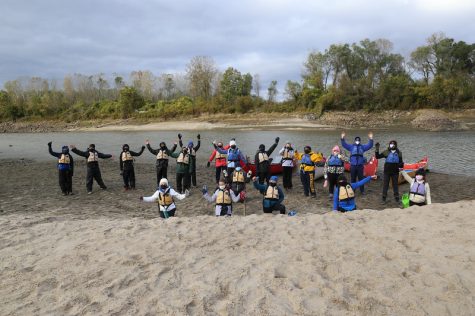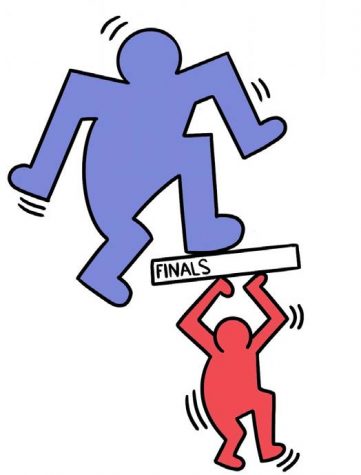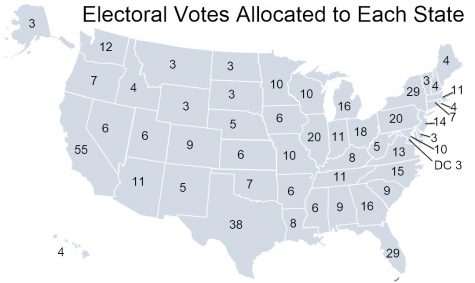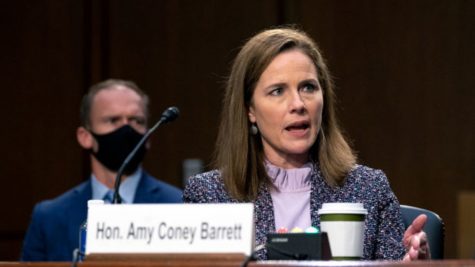Learning from the Past
On a humid summer evening in Bucharest, Romania, across the street from a famous sausage shop, a family sits on their porch, surrounded by kittens, eating different pastries and cheeses. The relative from America asks, “So, what was Ceausescu’s regime really like? What was it like to live in a communist society?” Her father translates the questions to the family. The following stories are from that night’s retelling of life in Romania in the 1980’s, a time that every day seems increasingly less distant.
Dan Cazacu, my father, then gave me a partial list of activities banned at the time. Among them were speaking with foreign citizens, having a passport (to travel internationally required an application for a passport for a trip and returning it upon arrival), reading the works of George Orwell, criticizing the regime, and getting an abortion.
The ban on abortions reminded me of President Donald Trump’s executive order in May, titled “Protecting Life in Global Health Assistance.” The law restricts $8.8 billion dollars from organizations around the world that were, according to The Washington Post, “deemed to promote abortion ‘as a method of family planning’ through abortion counseling, referrals, lobbying or public information campaigns.” While framing our president as a dictator should be avoided, and the ideology behind the two actions varies significantly, the effects a ban on abortion had on Romania should be noted. More than 9,000 Romanian women died between 1965 and 1989 due to complications arising from illegal abortions, according to The Guardian. As the popular saying goes, those who do not learn history are doomed to repeat it.
Beyond this list of bans, my understanding of this communist regime soon shifted towards the more personal anecdotes of family members during our dinner of sausage with mustard.
Xenia Oprea, my grandmother: “We had 2 hours of TV a day.”
Dan: “We had the evening news at 8, 8-8:30. Then from 8:30-9, it was the lasting teachings of the great comrade in a specific field; from 9-9:45, if you were lucky, you had a soap opera. 9:45-10, you had the nightly news, and at 10, end of the program. And of course, the evening news and the nightly news were [starts mocking “communist” voice, after humming a fanfare] ‘the comrade secretary general [Ceausescu] met with… the mayor of Timbuktu, yeah! And they shake hands. Wooo! Now we’re known to Timbuktu.
“[Dan translates from my aunt]: And on the weekend, you had 20 minutes of cartoons. That was extra, for the kids.” My family laughed heartedly.
While my family remained mostly lighthearted while telling these anecdotes, state-run media was far from a laughing matter. The regime used its control of the press to exaggerate positive statistics and neglect the repressive elements of society. In the US, a country with freedom of press, such control seems impossible. That is, until, one hears shouts of “fake news” and “alternative facts.” In recent weeks, the Trump reelection campaign has started a “real news” series with the goal of distributing “just the facts.” The Washington Post comprehensively fact-checked a 90 second segment to find it riddled with exaggerated statistics and opinionated “facts” reminiscent of Ceausescu’s regime.
When I asked my family where they saw ties between the behavior of Ceausescu or Iliescu and Trump, they gave different answers. Marius Cazacu, Dan’s cousin, noted that both have spoken in simple phrases, often with grammatical errors. Dan talked about the nepotism present in both administrations. For Ceausescu, his wife was vice prime minister; his son was member of the executive political committee, and his brother was a high ranking general in the army. Trump’s daughter Ivanka and son-in-law Jared Kushner’s rank in the government seem to have similar derivations.
I then asked the Cazacus “what caused Ceausescu’s ‘shift from president to dictator.” Marius said, “He saw dictators’ unlimited power and wanted it for himself,” referring to Ceausescu’s visit to North Korea and China in 1971. Romania’s leader became inspired by North Korea’s Kim Il-sung and China’s Mao Zedong’s attempt to turn their countries into world powers. Trump’s 2013 comment after visiting Russia for the Miss Universe Pageant rings similarly: “I was in Moscow and I was in Russia and they treated me so fantastically. I met so many incredible people.” A 2015 comment on Morning Joe: “[Putin is] running his country and at least he’s a leader, unlike what we have in this country,” Trump said.
Then there are anecdotes that cannot be compared to the current political climate in the US. There were extreme shortages and rations: supermarkets with completely empty racks except “shrimp chips,” which were potato skins with shrimp flavoring.
In an attempt to eat more than these chips, my father and grandparents would wait in lines 2 to 5 hours long for “tacâmuri.”
My grandmother again laughed wryly as she told the story. “and the meat was one little package, of 1 kilogram and you were content; you were happy to have it, but it was bones.” My dad explained, “They were not selling chicken, the chicken breast was exported. All you could find was the claws. The bones of the legs and the feet of the chicken.” Xenia finished, “and we called them tacâmuri. It sounded Japanese. And we laughed. This was our life.” She recounts another time, when she was on call as an anesthesiologist, with no time to wait in lines. She walked to a restaurant nearby and payed 70 lei ($20) for a single hard, cold strip of meat and a handful of cold french fries, her meal for the day. Her monthly salary was 1,500 lei ($375) a month.
Marius Cazacu, my father’s cousin, added, “That’s just a communist regime, that’s the problem. Ceausescu is just a form. Even if you had money, you didn’t have anything to buy with it.”
The shortages extended past meat, cooking oil (1 liter per household per month), and sugar (1 kg per person per month), to necessities like running water and electricity.
Xenia: “At any moment, we would have no gas, no light, no elevator; we go on the stairs with a candle or lantern, if we had. And we couldn’t cook a piece of meat, couldn’t make tea, nothing. Once a day, we took the bath in the same basin, [my husband] and me, in the same water because we had to catch it while it was there.”
My dad recalls having to study for university by candlelight. At the time, Marius was a freshman university student and wanted to visit West Germany. He was taken aside by 2 Securitate officers [secret police] and beaten bloody, and told he would be beaten up again if he persisted with his application. A visit to West Germany could instill radical ideas in him, including thoughts of democracy.
I asked how the regime ended.
Dan: “[Ceausescu] got shot. ‘89, December 25th. Christmas day. And it was another communist that shot him. And this guy pretended he was a big democrat.”
Marius, in Romanian: “Yeah, he was a democrat of the Russians.”
Dan: “It was Illiescu, the guy who brought the miners, that, you know, scratched my back a little bit. Back in 1990. Didn’t I tell you about Iliescu and the miners coming in Bucharest taking the university from students? It was my 5th year at the university of Bucharest. Why? Because comrade Illiescu told them to [mockingly] ‘eliminate the golani [hooligans, rascals]’”
Marius: “He started talking like Trump.”
Xenia: “Yes, like Trump.”
The event to which they were referring was the June 1990 Mineriad, and the protests that led to it. After the death of Ceausescu, the National Salvation Front was set to hold Romania’s first free elections in May. The University of Bucharest had been declared a “zone free of communism,” and university students demanded that former Communist leaders be banned from running for office. The elected president Iliescu called participants “golani.” Then, on June 13-15, remaining participants were arrested, and Iliescu brought miners to beat up the students and occupy the square.
My father went almost daily to the square to protest. On June 15, he went to hand in his senior thesis. A group of miners approached him, asked to see his ID and struck him with a baseball bat on his back.
This action wasn’t secretive, like the assault on Marius, or indirect, like the various rations. This was a deliberate act of uncalled for violence toward peaceful protesters condoned by the authorities. The president clearly endorsed the working class over the academics and initiated class warfare. The recent events in Charlottesville, including the murder of Heather Heyer, have shaken my family to its core because of the eerie similarities.
Our lives at John Burroughs School and in the United States do not resemble the totalitarian police state of Communist Romania. But perhaps that is only because our predecessors were able to identify the actions that start an avalanche of oppression. We must ask ourselves what can be done to prevent thoughts of communism or fascism from becoming administrations with those ideologies. We must take action, so that in ten, twenty, thirty years, there will be no reason for the following interaction:
I ask Marius, “What was the scariest part of the regime?” He responds solemnly, “All of it.”




